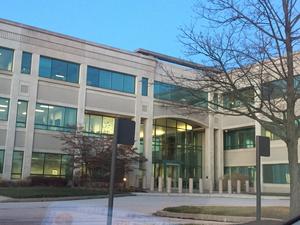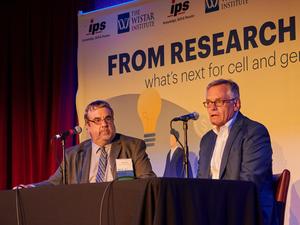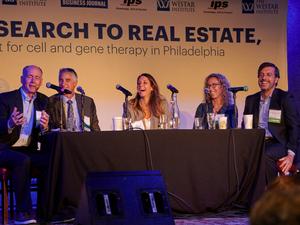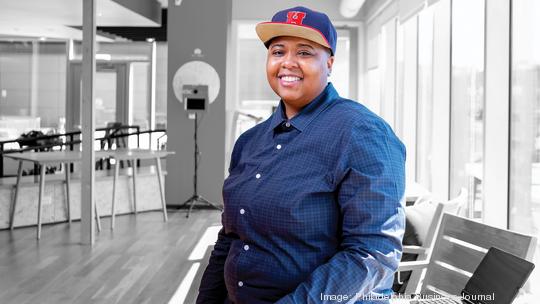
This week's life sciences industry news includes items on a local biotechnology company securing a key FDA designation for its lead drug candidate, a multimillion-dollar debt financing deal, and takeaways from a CEO's participation in a White House panel on biomanufacturing.
Here's the roundup:
LucasPye Bio
Tia Lyles-Williams, founder and CEO of Philadelphia-based contract development and manufacturing organization LucasPye Bio, was in Washington, D.C., last week to speak at the White House Summit on Biotechnology and Biomanufacturing.
The event was attended by members of congress, cabinet secretaries, and industry and academic leaders. Lyles-Williams was a panelist in a session on biomanufacturing and the bioeconomy.
"The experience was phenomenal and 'once in a lifetime' for a Black, queer-owned life science startup to be invited to the White House," she said.
In her comments, she took the opportunity to outline her plans for a life sciences park in Southwest Philadelphia — an area she said is home to "an urban minority community of marginalized community members" — that she said will go a long way to diversifying the workforce in the rapidly growing cell and gene therapy industry.
The life sciences park she is planning would include an 80,000-square-foot bioprocessing plant that would also serve as LucasPye's new headquarters, and feature an accelerator for startups, a workforce development program, affordable housing and retail.
Lyles-Williams also spoke of the major contributions African Americans have made to the life sciences industry. Her list included Percy Lavon Julian, the first African American man to own a biomanufacturing facility and the developer of a mass production process for cortisone and progesterone; Dr. Charles Drew, who invented the blood banking system and how blood transfusions are done; and Henrietta Lacks, whose cervical cancer cells produced what continues to be one of the most important cell lines ever for medical research.
"So, I just want you to remember," Lyles-William said to summit attendees, "as we talk about manufacturing, to make sure we continue to talk about the equity piece. … LucasPye is at the forefront of that. Our C-suite is around 85% to 95% people of African descent and 50% women. We are really interested in making sure that not only are we actively participating in this industry, and doing the work to get the drugs that the patient needs, but also making it equitable for all members of America and around the globe to participate as employees, entrepreneurs and all the way up to the C-suite."
Aro Biotherapeutics
The Philadelphia biotechnology company secured rare pediatric drug designation for its experimental Pompe disease treatment ABX1100 from the Food and Drug Administration.
Founded in 2018, Aro Biotherapeutics is pioneering the development of tissue-targeted genetic medicines with a platform based on a proprietary protein technology called Centyrins.
Pompe disease is a rare and deadly disease characterized by debilitating muscle weakness that progresses over time. It is caused by a mutation in the acid alpha glucosidase enzyme, which is responsible for breakdown of glycogen in muscle cells.
ABX1100 is designed to treat Pompe disease by reducing glycogen buildup in the muscles.
“Pompe Disease affects patients of all ages but can be particularly devastating in children," said Dr. Mittie Doyle, Aro's chief medical officer. "We are committed to developing ABX1100 for children that suffer from Pompe disease in order to provide these pediatric patients with a new therapeutic option.”

The FDA awards rare disease designation to drugs treating rare pediatric diseases that are serious or life threatening and affect patients from birth to 18 years of age. Drug companies that get the designation are entitled to receive a pediatric review voucher, should their drug candidate be approved, that gives the holder access to a priority review for another product.
Such vouchers can be sold to another company. Earlier this year, Radnor-based Marinus Pharmaceuticals sold its rare disease voucher to Nova Nordisk for $110 million.
Enterin
The Philadelphia biotechnology company raised $6 million in a debt financing, which was disclosed in documents the company filed with the U.S. Securities and Exchange Commission.
The company previously raised about $56 million in three rounds of equity financing, and $5.7 million through a debt financing last year.
Enterin was founded in 2014 by Dr. Denise Barbut, Dr. Michael Zasloff and William Kinney. Its CEO is former Merck executive David McCullough.
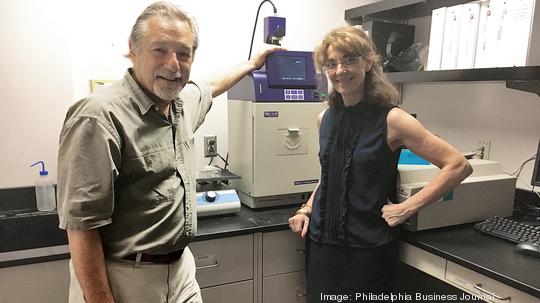
The company's goal is to be the first to develop a drug that repairs the dysfunctional gut-brain axis in patients with Parkinson's and other neurodegenerative diseases. The gut-brain axis is where the neurological signaling takes place between the gastrointestinal tract and the central nervous system.
Its lead new drug candidate, ENT-01, is in mid-stage clinical testing as a potential treatment for Parkinson's disease. A second compound, ENT-03, is being developed as an Alzheimer’s therapy. Enterin's pipeline also includes a potential treatment for multiple sclerosis.
Quick Hits
The Center for Breakthrough Medicines and jCyte of Newport Beach, California, have entered into a multiyear partnership under which the King of Prussia-based center will manufacture jCyte's cell therapy for treating retinal degenerative diseases. Financial terms of the agreement are being kept confidential. … Anpac Bio-Medical Science Co. (NASDAQ: ANPC), a biotechnology company focused on cancer screening and detection that has operations in Spring House and China, has filed an appeal of Nasdaq's delisting of the company's stock for its failure to maintain the $1 per share bid price requirement. A hearing on the appeal will be held Oct. 20. … A treatment for pancreatic cancer under development by Antengene Corp. Ltd., a biopharmaceutical company based in Shanghai that has U.S. operations at the Pennsylvania Biotechnology Center of Bucks County in Doylestown, received orphan drug designation from the FDA. The designation is designed to accelerate the development of experimental therapies targeted toward conditions that afflict less than 200,000 people in the U.S., and provide incentives such as tax credits and extended market exclusivity to drug companies developing such products.

